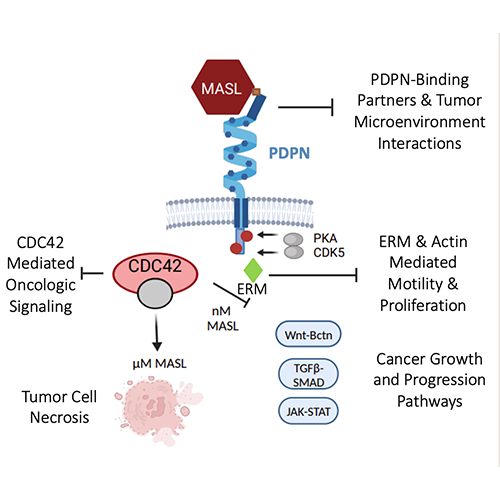MASL Inhibits Motility, Proliferation and Metastasis
Mechanism of Action: Blocks podoplanin (PDPN) signaling

ERM = Ezrin/radixin/moesin proteins
-
Orally dosed, bioactive lectin derived from Maackia amurensis seeds
-
Efficiently binds to PDPN upregulated on tumor cells
-
Blocks PDPN mediated activation of Cdc42 impacting cell-to-cell adhesion, cell cycle regulation, tumor vascularization and homeostasis
-
Downregulates oncogenic signaling pathways (Wnt-Bctn, TGFβ-SMAD, JAK-STAT)
-
Alters tumor microenvironment interactions limiting metastatic activity and decreasing immune resistance
-
Induces caspase independent necrotic cell death
Our lead product, MASL, is a novel, orally dosed inhibitor of PDPN. MASL blocks PDPN mediated activation of Cell division control protein (Cdc42) a driver of metastasis and therapy resistance in multiple cancer types. Cdc42 plays an important role in cell-to-cell adhesion and cell cycle regulation by influencing cellular proliferation, transformation, and homeostasis, as well as the cellular migration and invasion processes underlying tumor formation. By efficiently binding to PDPN, contact normalization is revived by MASL to inhibit tumor cell growth and invasion, and activate tumor cell destruction signaling.